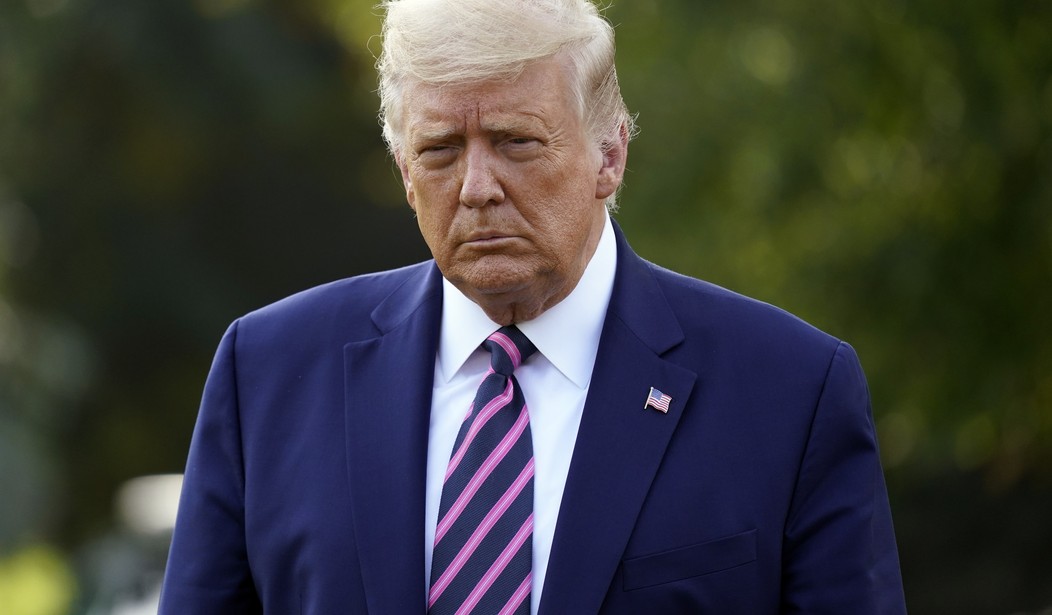On Wednesday, President Donald Trump tweeted a picture of rockets fired at the U.S. Embassy in Baghdad on Sunday. He blamed Iran for the strike and issued a powerful warning should the Islamic Republic attack again.
“Our embassy in Baghdad got hit Sunday by several rockets. Three rockets failed to launch. Guess where they were from: IRAN,” he tweeted. “Now we hear chatter of additional attacks against Americans in Iraq.”
“Some friendly health advice to Iran: If one American is killed, I will hold Iran responsible. Think it over,” the president concluded.
…Some friendly health advice to Iran: If one American is killed, I will hold Iran responsible. Think it over.
— Donald J. Trump (@realDonaldTrump) December 23, 2020
The U.S. Embassy in Baghdad reported the attack on Sunday.
“The U.S. Embassy confirms rockets targeting the International Zone resulted in the engagement of Embassy defensive systems. There was some minor damage on the Embassy compound but no injuries or casualties,” the embassy announced on Twitter. “These sorts of attacks on diplomatic facilities are a violation of international law and are a direct assault on the sovereignty of the Iraqi government.”
The embassy called on Iraqi officials to prevent further attacks and to “hold accountable those responsible” for them.
Saeed Khatibzadeh, a spokesperson for Iran’s foreign ministry, insisted Iran was not responsible for the attack and blamed the U.S. for escalating tensions.
“We strongly refute Secretary [Mike] Pompeo’s irresponsible anti-Iran accusations, which blatantly aim to create tension,” Khatibzadeh tweeted. “Iran rejects any attack on diplomatic missions. The U.S. military presence is the source of instability in our region. No amount of spin can divert blame for its evils.”
Iran-backed militias besieged the U.S. Embassy in Baghdad late last year, sparking a series of events that culminated in the assassination of Quds Force General Qasem Soleimani, who led Iran’s terrorism efforts in the Middle East and has been responsible for the deaths of hundreds of American soldiers.
After the strike, Supreme Leader Ayatollah Khamenei vowed “severe revenge,” but the regime’s efforts have failed. Iran fired missiles at U.S. assets, but the country also shot down a Ukrainian plane, killing its 176 passengers (82 Iranians, 63 Canadians, 11 Ukrainians, 10 Swedes, 7 Afghans, and 3 British citizens), sparking protests in the streets of Tehran. Iran petitioned INTERPOL to demand an arrest warrant for Trump over Soleimani’s death, but INTERPOL refused. An Iranian issued an $80 million bounty on Trump’s head, to no avail as yet.
U.S. intelligence reports have suggested that Iran is planning to assassinate U.S. Ambassador to South Africa Lana Marks, and in September, a former general of Iran’s Revolutionary Guard Corps warned that the IRGC planned to assassinate Trump.
While Iran’s efforts have failed so far, the Islamic Republic may grow increasingly dangerous in its desperation. Before Soleimani’s death and the recent protests, Iran faced protests last November after the country reduced fuel subsidies by 50 percent and instituted rationing, in part due to pressure from the Trump administration after America withdrew from the Iran deal.
Then the coronavirus pandemic came, just before parliamentary elections. Tehran appears to have suppressed information about the coronavirus in order to avoid a low turnout in the elections. Voting fell to the lowest level since 1979, and Khamenei accused the country’s enemies of exaggerating the threat of the coronavirus right before the election.
The outbreak appears to have begun in Qom, the mullahs’ spiritual center. Satellite images from space showing mass graves appear to have confirmed the opposition’s claims that Tehran has vastly under-reported the death count from the coronavirus pandemic. Iran’s opposition party is also mobilizing. It hosted a virtual global summit in July.
There are also heartening signs that Soleimani’s death has paved a new future for the Middle East after Trump’s historic deals between Israel and Arab states like the United Arab Emirates.
Unfortunately, incoming President Joe Biden seems intent on restoring the Iran nuclear deal, which would likely reverse some of Trump’s progress in the Middle East. Trump may crack down on Iran in order to prevent this reversal.
Tyler O’Neil is the author of Making Hate Pay: The Corruption of the Southern Poverty Law Center. Follow him on Twitter at @Tyler2ONeil.









Join the conversation as a VIP Member